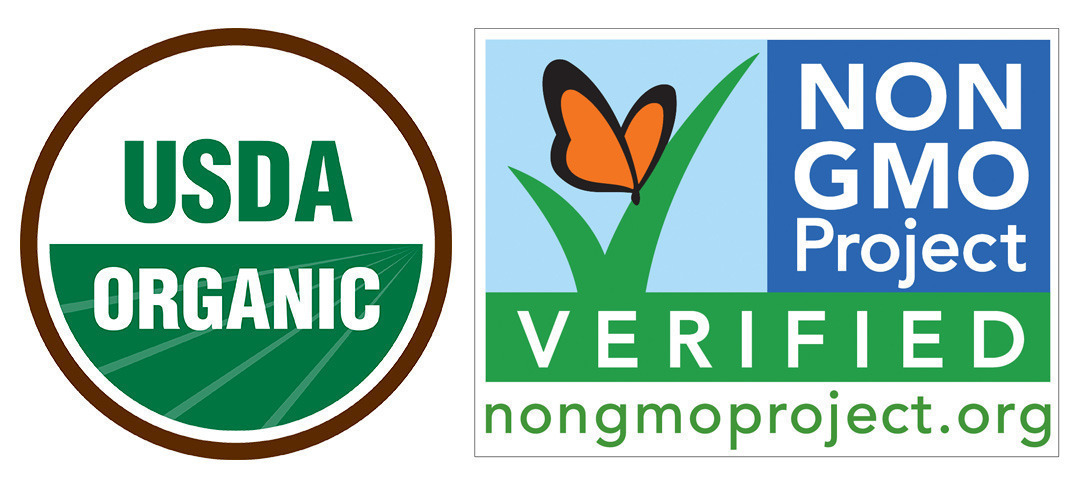
It seems like these days, many people are looking at their food labels – at least I do, I’m not sure how many of you do.
Although I never cared in my 20’s, now that I have kids and as I get older I DO care more – and over the last year we have seen so many people in our own family with health problems that I feel could have been prevented earlier. Instead of being reactionary, it’s always a great thing to be precautionary.
This past year, I have seen personal friends on Facebook who once were HUGE coupon users, cut back completely because they found out at their physical that they were borderline diabetic. I have seen people in our own family disregard their health (diabetes) and end up on life support in the hospital – and you have to feel bad.
Perhaps they didn’t realize their choices would have such an implication so early on in life. Perhaps they figured the Rx medicine that the doctor prescribes would take care of the problem – when in fact, the root of the problem is your own individual food choices.
Perhaps you don’t feel the same but you will have to admit that does hold some truth.
I’m a supporter of transparency in our food system and I think it’s great that many consumers are learning and making informed decisions about their food. I’m glad we have local farmers in Phoenix that allow us to purchase CSA Shares each week, and I’m thankful for Farmers who make Raw Milk available – because face it, there aren’t too many at all.
When you are shopping at the store, it can be confusing to understand the difference between Organic and Non-GMO Items. It’s a learning curve for many. For some people, neither one are even an option they have ever considered.. perhaps it’s just a matter of cost? For some they may not know or realize why it’s important.
While both are great, they have some pretty HUGE differences. Is it really that important you know the difference?
Yes and no... if you are concerned about picking up the BEST food for your family, then YES. It is definitely crucial. Every purchase you make is supporting your body.
Your health.
It’s going towards more than just you though, it’s supporting the farmer, someone’s decision to GROW better food. In a time when it has become more mainstream to follow mainstream, that is incredibly important.
What does that Non-GMO Project Label REALLY Mean?!
The Non-GMO Project label verifies that the product does not contain Genetically Modified Ingredients – while it’s not 100%, it’s ensures that the product contains less than 0.9%.
That’s great – considering GMO’s may not be wise for your health long term.
There are THREE types of GMO’s:
1. BT Toxin – it’s in Corn, Soy & Cotton. This is genetically engineered to reproduce. When bugs eat this BT Toxin their stomach will expand, and die.
2. Roundup Ready – the Plant has been genetically engineered to withstand roundup, and it does not die. Everything else around it WILL die – including the good bacteria. Within Roundup Ready is Glyphosate – which can destroy your gut bacteria. 70% of your immune system is your gut bacteria. Without that gut bacteria we can’t produce Tryptophan, without Tryptophan we can’t produce Seratonin. Without Serotonin we can’t regular blood sugar. Diabetes costs our Federal Government $245 Billion (that was as of 2012 – it may have increased since then). In my husband’s family almost everyone is diabetic. .. I have a multitude of friends that are also diabetic.
3. Desired Trait – Injected into items to wake up genes. Make lettuce more green, tomatoes bigger. The problem with these promoters, is that they have promoters – and many parents are concerned that these promoters are waking up our children in ways that aren’t good for their long term health. (Source)
The Non-GMO Project is the only organization that offers independent verification for GMO products in the U.S. and Canada.

So when given the opportunity to shop for Non-GMO OR Organic (or both..) what’s the best option?
USDA Organic Certification is the preferred holistic approach to the health of your food system, and food produced without chemicals. Since the Non-GMO Project only verifies Meats and Processed Foods (NOT Fresh Produce), buying certified organic produce is the only way to avoid GMO’s in your fresh foods.
So when given the option, should you opt for Organic or Non-GMO? If at all possible, Organic is always the BETTER choice — but why?!
Certified Organic Foods are ALSO Non-GMO. The USDA prohibits GMO’s in Certified Organic Products. Though the USDA Organic Label certifies that 95-100% of the ingredients are Organic, leaving a small percentage of ingredients NON-Organic. However, since there are not GMO’s in USDA Certified Organic, those mere 5% ingredients shouldn’t be GMO.
Glyphosate is NOT permitted on Organic Crops. Roundup is an herbicide that is sprayed on crops – the crops are engineered to withstand Roundup, but everything around it (including the soil) dies – even the GOOD bacteria dies. Unfortunately, Non-GMO Crops (such as wheat) can be pre-harvested with glyphosate. The real reason wheat is toxic is far from being the Gluten. There is concern that the widespread use of this herbicide can accumulate and lead to the escalating incidence of autoimmune disorders.
Organic Crops are not fertilized with sewage sludge. While Non-GMO crops are treated with waste- from hospitals, industry, and wastewater (your toilet water). Many people are familiar with Halo Mandarins – which are grown in California and watered with Oil Industry Waste Water. Now that they are in a drought, it’s incredibly important for them to use ALL water – which means that what you are buying might just very well be irrigated and watered with toxic Oil Field Wastewater. Those little Halos aren’t as angelic as we may have thought.
Organic Animals are not given growth antibiotics. These antibiotics are given to fatten up farm animals to enhance food supply quickly – the problem with these antibiotics is that they destroy the GOOD gut bacteria. Many farmers will claim they are used to prevent illness in animals – and in some cases, they are. But they are ALSO given to fatten up animals too. Each year, over 2 Million Americans get antibiotic resistant illnesses (Source).
Organic Meat is Given Ractopamine. If you haven’t heard of that, it promotes leanness and growth in Pigs. It’s used for pigs raised for food in the U.S. (but is banned in most other countries). It promotes drug resistant superbugs that endanger your health by harboring salmonella. (Source)
Non-Organic Foods, especially those that process Soy Ingredients, contain ingredients processed with Hexane. To process soy ingredients (soy protein isolate, soy protein concentrate), Soy manufacturers immerse whole soybeans in petroleum based solvents (ie. Hexane). When you look at your supermarket shelf and see meatless alternatives like veggie burgers, and nutritional bars, you may not realize that the soy that makes them meatless IS in many cases extracted with hexane.

Clif Bars, are made with Organic soybeans, but the ingredients DOES list Soy Protein Isolate (which is hexane extracted) — which is why reading labels is SO important!
Organic Foods Cannot be Grown with Synthetic Pesticides. Although they are not entirely free of pesticide residue, the residue is much LOWER in Organic food than in Non-GMO Food. On the opposite end of the spectrum, Non-GMO Chips CAN contain pesticide residue.

The claim that items are Non-GMO are largely unregulated (we are talking about manufacturers just slapping that terminology ON their product, not the label pictured above), and that is because the FDA hasn’t set any standards to regulate the claim.
Although the Non-GMO Project Label is a process for verifying if items meet the requirements of carrying the label, there is NO 3rd party verification to validate those claims made by companies that say their product is Non-GMO.
Some of the most commonly purchased products are all made with GMO soy – including Baby Formula Enfamil Prosobee, Gerber Good Start, Similac Soy Isomil, Go and Grow, and items like PowerBars, Boca Veggie Burgers, MorningStar Farms Burgers & more.
Without food transparency, there are NO safety mechanisms to ensure that you are buying FOOD food. Unless of course you do a lot of label reading and really know what you are purchasing… but so few people read labels in the store and instead look at the package front as an indicator – should I, or shouldn’t I purchase?
Should you be concerned? Only YOU can determine if it’s important for yourself.




Leave a Reply
You must be logged in to post a comment.